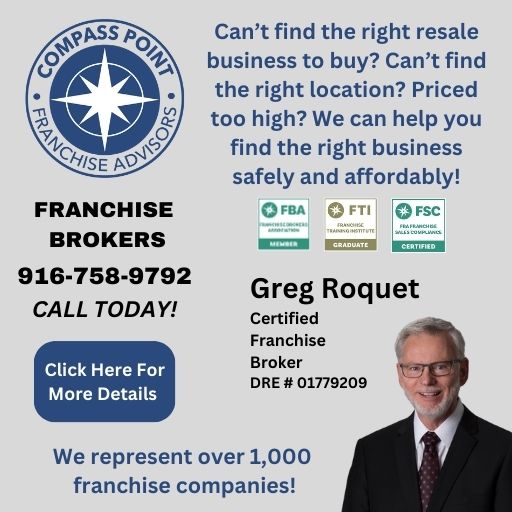
If you are going to be a business owner, it must appear in your mind how is goodwill taxed when buying a business? You may also wonder, as an intangible asset under IRS rules, what its treatment depends on how the deal is structured? In most asset purchases, goodwill can be amortized over 15 years, allowing buyers to deduct the expense annually and reduce taxable income. However, in stock purchases, goodwill is not amortizable, making tax planning critical. Sellers, on the other hand, usually pay capital gains tax on goodwill. Both parties must comprehend these guidelines to optimize financial results.
What Is Goodwill in a Business Acquisition?
Goodwill represents the intangible value of a business that goes beyond physical assets like equipment or real estate. It captures the reputation, customer loyalty, brand recognition, intellectual property, and future earnings potential of a company. When a buyer pays more than the net asset’s fair market value, goodwill is recognized as an intangible asset in accounting.
For example, if a business has tangible assets worth $500,000 but sells for $800,000, the $300,000 difference is classified as goodwill. This premium reflects the perceived long-term value of the business that cannot be physically measured but strongly impacts profitability.
Tax Treatment of Goodwill When Buying a Business
The tax treatment of goodwill depends on how the acquisition is structured. In the U.S., goodwill falls under Section 197 of the Internal Revenue Code, which governs intangibles. Because it has a big impact on the tax benefits available, buyers and sellers need to know the difference between asset and stock purchases.
Asset Purchase vs. Stock Purchase: Which Is Better?
Asset Purchase Benefits
An asset purchase gives the buyer ownership of the company’s individual assets, including goodwill. One of the key advantages here is that goodwill can be amortized over 15 years on a straight-line basis. This means the buyer can deduct one-fifteenth of the goodwill value every year, reducing taxable income and generating steady tax savings. Asset purchases also provide flexibility in how the purchase price is allocated between equipment, real estate, inventory, and intangibles. This flexibility can be strategically used to maximize tax efficiency. Additionally, buyers in asset purchases do not assume unknown liabilities of the seller, reducing financial risks.
Stock Purchase Considerations
In a stock purchase, the buyer acquires ownership of the company as a legal entity, including its liabilities and obligations. This makes the transaction simpler for the seller because contracts, licences, and ongoing operations usually remain intact. However, the downside for buyers is that goodwill in stock purchases is not separately recognized for tax purposes and therefore cannot be amortized. This means buyers miss out on the annual deduction benefit, making stock purchases less tax-efficient. Despite this, stock purchases are often chosen in industries where business continuity is vital, such as healthcare, finance, or heavily regulated sectors.
Amortization of Goodwill
Under IRS regulations, goodwill acquired through an asset purchase must be amortized over 180 months. This amortization is done on a straight-line basis, meaning the same amount is deducted each year. For example, if $300,000 is allocated to goodwill, the buyer can deduct $20,000 annually for 15 years.
This steady deduction lowers taxable income and helps improve cash flow, particularly in high-tax states like California. For buyers, these deductions can make a significant difference in long-term profitability, especially if the business is expected to generate strong future earnings.
Tax Implications for Buyers and Sellers
For Buyers
For buyers, goodwill amortization is a powerful tool to reduce taxable income over time. Proper valuation of a business and allocation of purchase price between tangible and intangible assets is critical, as it ensures compliance with IRS rules while optimizing deductions. Buyers also benefit by structuring deals as asset purchases rather than stock purchases, since only asset purchases allow for goodwill amortization. In states with higher tax rates, such as California, these deductions become even more valuable because they directly offset a larger portion of taxable income.
For Sellers
From the seller’s perspective, goodwill is generally treated as a capital asset. When sold, the portion of the sale price allocated to goodwill is taxed as a long-term capital gain, often at lower rates than ordinary income. This is beneficial for sellers, especially in tax-friendly states like Texas, where no state income tax applies. However, in California, sellers may face higher effective tax burdens because state capital gains are taxed as regular income. As a result, negotiations over purchase price allocation can play a major role in determining how much tax sellers ultimately owe.
Strategies to Optimize Goodwill Taxation
Proper Allocation of Purchase Price
The way a purchase price is allocated between goodwill, tangible assets, and other intangibles can significantly impact tax outcomes. Buyers generally want more allocation toward tangible assets for faster depreciation benefits, while sellers may prefer allocation to goodwill because it qualifies for capital gains tax treatment. Working with tax professionals ensures both sides reach a balanced, compliant allocation strategy.
Leveraging Tax Elections
Certain tax elections, such as a Section 338(h)(10) election, can transform a stock sale into an asset sale for tax purposes. This allows buyers to enjoy amortization benefits while letting sellers keep the structural simplicity of a stock transaction. These elections can be complex, but they are powerful tools when both parties agree on optimizing tax efficiency.
Negotiation Tactics
Negotiating the allocation of purchase price is not just about valuation; it’s about tax efficiency. Buyers and sellers often have competing interests, so it is critical to engage advisors who can structure allocations that minimize total tax liability. By considering both federal and state tax laws, parties can arrive at solutions that benefit both sides.
Common Mistakes to Avoid
Ignoring Amortization
Some buyers fail to include goodwill amortization in their financial projections. This oversight can cause them to underestimate long-term tax savings. Amortization should always be factored into deal analysis to get a realistic picture of post-acquisition cash flow.
Improper Allocation of Purchase Price
Another mistake is incorrectly allocating the purchase price. Over-allocating or under-allocating to goodwill can reduce tax efficiency or even trigger IRS scrutiny. Proper valuations are essential to avoid compliance issues and maximize deductions.
Skipping Professional Guidance
The taxation of goodwill is complex, and skipping professional guidance is a major risk. Without input from tax advisors and legal counsel, buyers and sellers may unintentionally structure deals in a way that increases tax burdens. Professional guidance ensures compliance and helps unlock the full financial benefits of goodwill amortization.
Conclusion
Goodwill taxation is one of the most important aspects of business acquisitions, shaping the financial results for both buyers and sellers. Buyers benefit through amortization deductions that reduce taxable income over 15 years, while sellers often pay favorable capital gains tax on the goodwill portion of the sale. Structuring the transaction correctly, choosing between asset and stock purchases, allocating the purchase price wisely, and leveraging tax elections can make a substantial difference in financial outcomes.
In competitive markets like California and Texas, where tax rules and business dynamics differ, careful planning is especially important. California buyers benefit significantly from goodwill amortization to offset high state taxes, while Texas sellers enjoy greater net proceeds thanks to the absence of state income tax. Regardless of location, the smartest approach is to work closely with tax professionals to ensure the deal is structured for maximum efficiency.
By fully understanding how goodwill is taxed and planning accordingly, both buyers and sellers can minimize liabilities, maximize profitability, and create a stronger foundation for long-term success.
FAQs:
Can goodwill be written off as a one-time expense?
No. Under IRS regulations, goodwill must be amortized over 15 years on a straight-line basis.
Is goodwill tax-deductible in all types of business purchases?
No. Goodwill is deductible only in asset purchases, not stock purchases.
How does goodwill impact future financial statements?
Goodwill is reported as an intangible asset and amortized annually, which impacts profit and loss statements.
Can goodwill be re-evaluated for tax purposes later?
No. Once goodwill is established and recorded, it follows the 15-year amortization schedule under IRS rules.
Does goodwill affect business valuation?
Yes. Goodwill reflects brand value, customer loyalty, and market strength, making it an important component of business valuation.
































